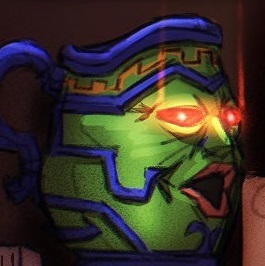Hello comrades, it’s time for our first discussion thread for The Will to Change! Please share your thoughts below on the first two sections of the book. There’s quite a lot to talk about between hooks’ discussion of masculinity discourse within feminist circles, the ways both men and women uphold patriarchy, and the near universal experience of men being forced to suppress their rich emotional worlds from a young age. I’ll be posting my thoughts in a little bit after I’m done with work.
If you haven’t read the book yet but would like to, its available free on the Internet Archive in text form, as well as an audiobook on Youtube with content warnings at the start of each chapter, courtesy of the Anarchist Audio Library, and as an audiobook on our very own TankieTube! (note: the YT version is missing the Preface but the Tankietube version has it) Let me know if you’d like to be added to the ping list!
Our next discussion will be on Chapters 2 (Understanding Patriarchy) and 3 (Being a Boy), beginning on 12/4.
Thanks to everyone who is or will be participating, I’m really looking forward to hearing everyone’s thoughts! 

Without judging my emotional reactions, I find it interesting that the line in the intro that immediately makes me feel respect for bell hooks, who I’ve never read before, is simply stating, from a place of wanting to love, that she fears men. Just that simple thing so plainly said, but it’s so…loaded? I don’t know the word. I think one very common experience many people of all types share with men is learning, either explicitly or implicitly, that you can’t show fear if you want men writ large to leave you alone. And this is a topic where I’m a bit out over my skis because while this is something very broadly experienced, I can only speak to it from one angle, the angle of being raised as a boy/man. But the experiences of that upbringing, with the way that both male adults and other boys condition and are conditioned into enforcing “normal” male socialization onto others by punishing displays of vulnerability…it’s something very deeply instilled that you must embody a militaristic stoicism at all times, never let them see you hurt, don’t even let you see yourself hurt.
So to cop to that fear right off the bat has the same emotional weight to me as one of those millions of fiction moments where the protagonist completely disarms and walks directly into the enemy camp to talk. Something simple in concept, but so genuine and courageous that it’s utterly compelling. A kindness nott alien, but familiar in a way that makes you realize you’ve been the alien. It has me thinking of the lifelong pattern where I can only show any kind of vulnerability to someone who shows it to me first. People have always said I’m a loyal friend because they can come to me, and I accept and am there for them in dark moments, but a lot of that is me wanting to be -just feel, I guess- both worthy of having problems, and safe to share them. And you feel safe with someone when they need you.